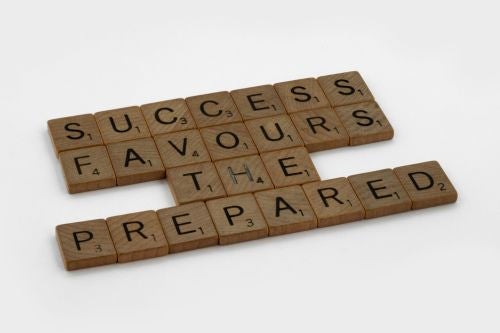
Are you worried about the potential for “hot button” issues to create uncomfortable situations in your classroom?
The purpose of this guide is to provide instructors with strategies they can use to orient their class towards meeting learning outcomes through difficult discussions rather than allowing them to disrupt learning.
Download Part 1 PDF
Be Prepared in Advance
Course Content
- Examine your course content carefully to identify possible “hot button” topics that may be an integral part of your course content.
- Remember that some topics you find controversial may not necessarily be controversial to your students and vice versa.
- Make connections between these difficult topics and your learning goals by reflecting about how engaging in difficult conversations may add to rather than detract from learning.
- Conflict in classrooms can promote cognitive gains in complex reasoning, integrated thinking and decision-making.
- Learning about the lived experiences of peers can be a transforming experience.
- Being capable of respectfully engaging in conversations about sensitive topics is an important life skill to practice.

Reflection
- Reflect upon and be honest in considering your own ingrained biases and emotional triggers.
- Plan to use self-control strategies to manage your own reactions in uncomfortable situations.
- Give yourself time to pause and take a breath before reacting.
- Rehearse phrases you might say to help diffuse a trigger.
- Be prepared to remove the emotional factors and consider facts.
- Plan some words and phrases you can use to make sure you respond to a triggering event calmly while treating all persons with respect.
- Try to assume good will on the part of other people. Do not attempt to assume another person’s motivations.
- Always seek to find truth, rather than to change minds.
- Consider adding a diversity and discussion statement to the syllabus, which will set basic ground rules for respectful discussions and include specific examples of how these conversations may enhance student learning.

Establishing Rapport
- Establish expectations for class discussions by setting specific ground rules in the syllabus and/or during the first class. Students should agree to these rules or have a part in creating/modifying them once class begins.
- Get to know your students and help students get to know each other.
- Spend some class time encouraging students to get to know one another through introductions, group work and icebreakers.
- Create a learning community of respect for each other by encouraging personal reflection and the sharing of relevant background information.

Setting Ground Rules
Ground Rules to Consider
- Use a calm, respectful tone at all times
- Allow everyone to speak without interruption
- Listen to understand, rather than to respond
- Be inquisitive in your responses rather than attacking or debating
- Criticize ideas instead of people to avoid making it personal
- Maintain confidentiality
Additional Resources
The following resources were consulted in the construction of this guide and can be referenced for deeper exploration.
- UT-Knoxville – Inclusive Teaching Toolbox – The “before class” portion supports the information included in this document.
- UT-Knoxville – Top 5 Tips for Facilitating Difficult Dialogues About Racism and Anti-Semitism
- University of Virginia – Six Ways to Encourage Difficult Dialogues
- University of Florida – Handbook for Facilitating Difficult Conversations in the Classroom
- University of Wisconsin-Milwaukee – Faculty Guide to Navigating Difficult Dialogues
- University of Connecticut – Difficult Dialogues
- Tufts – How Can I Manage Difficult Dialogues?
- Penn State Harrisburg – Inviting Difficult Dialogue
- Vanderbilt University – Difficult Dialogues
- Brown University – Facilitating Controversial Discussions
- Harvard University – Key Moves
- Carnegie Mellon University – Handle Difficult Moments with Respect & Sensitivity
- University of Delaware – Difficult Dialogues
- University of Michigan – Guidelines for Discussing Difficult or High-Stakes Topics
